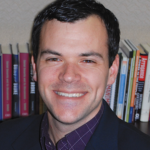The parents of 11-month-old Charlie Gard gave up their fight to obtain treatment for him outside the United Kingdom’s socialized medical system, the National Health Services (NHS), on July 26, instead entering negotiations over where the child would spend his final days.
Gard was diagnosed with mitochondrial DNA depletion syndrome, a life-threatening neurological disorder damaging to vital organs, shortly after his birth in 2016.
The High Court granted the Great Ormond Street Hospital, where Gard has been receiving treatment in London, permission to take Gard off life support in April. The legal battle continued as parents Chris Gard and Connie Yates presented new evidence of a potentially brighter prognosis for their son, including the results of a recent brain scan. They sought to gain the child’s release in order to try a last-chance treatment in the United States.
Gard and Yates gave up their fight after concluding treatment was no longer feasible after the long delays.
Offer to Help
In court on July 21, Mr. Gard shouted, “Evil!” after Katie Gollop, a lawyer representing the hospital, said a brain scan report, which the family had not yet seen, evinced a “sad reading,” The Guardian reported.
The scan results might have influenced whether the High Court would have let Gard and Yates obtain last-chance treatment for their son in the United States, were the parents still pursuing the option.
The U.S. House Appropriations Committee passed a bill on July 19 that would have granted Charlie Gard U.S. citizenship, which might have facilitated his treatment in the United States.
President Donald Trump tweeted on July 3, “If we can help little #CharlieGard, as per our friends in the U.K. and the Pope, we would be delighted to do so.” Mr. Gard and Ms. Yates raised $1.6 million to obtain treatment for their son in the United States.
‘State Monopoly’
Trey Dimsdale, director of program outreach at the Acton Institute for the Study of Religion & Liberty, says socialized health care systems necessarily limit patients’ treatment options.
“For all practical purposes, socialized medicine creates a state monopoly with regard to one of the most significant keys to quality of life, and often to medical treatment, that can prove to be lifesaving,” Dimsdale said.
In addition to providing inadequate treatment, the UK’s system makes unilateral treatment decisions under inadequate oversight, Dimsdale says.
“In this case, the NHS is not simply the single payer and provider with limited care options, which would be bad enough, but it is asserting itself as the authority that knows best the right care options for this patient, and this assertion has been ratified by a UK court,” Dimsdale said.
‘Egregious Breach’ of Rights
The UK’s socialized system not only impairs treatment but also tramples fundamental rights, Dimsdale says.
“This is an egregious breach of the rights of Charlie’s parents to act as his parents in his best interest, but it is also an egregious breach of Charlie’s right to enjoy the benefits of his parents’ love-driven decisions, made in what they understand to be his best interest,” Dimsdale said.
Individuality Unheeded
Aaron Baer, president of Citizens for Community Values, says socialized medicine holds patients hostage to fiscal and statistical analysis that overrides individualized treatment.
“The scope of a socialized health care system necessitates that patients are viewed through the lens of dollars and cents and stats and probabilities,” Baer said. “Charlie Gard’s family is the tragic case study that proves it. It’s unfathomable to imagine having a child diagnosed with a genetic disorder. It’s even worse to imagine having the state tie your hands from doing everything possible to save your child’s life.”
Respecting the value of human life and dignity requires free markets, Baer says.
“No matter the industry, when the government co-opts the market, the rights of individuals and families suffer,” Baer said. “Health care is no exception. Government programs are incapable of treating people as individuals.”
Michael McGrady ([email protected]) writes from Colorado Springs, Colorado. Michael T. Hamilton ([email protected]) is managing editor of Health Care News, author of the Consumer Power Report, and host of the Health Care News Podcast.
Image via Thinkstock





